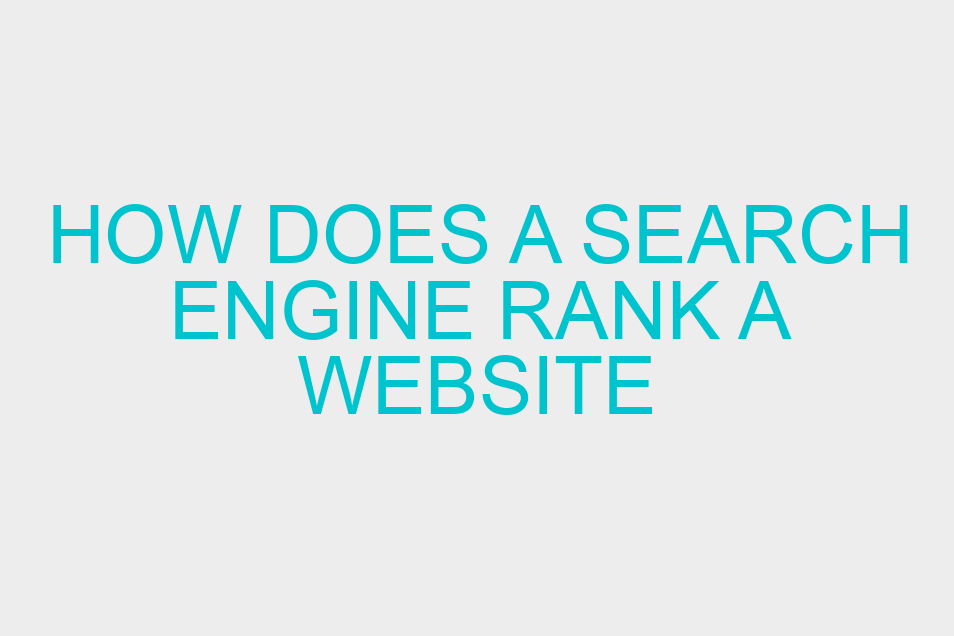How Does A Search Engine Rank A Website

Today using the search facility over the Internet has become an integral part of our lives. Want the answer to a question – search. Want to know the latest news – search. Want a recipe – search. It’s all about using your favourite search engine to find your answers.
But how is it that some website pages are shown on Search engine page 1, some on page 2 and so on? How does a search engine rank a website? How does a search engine determine which website is the most relevant? Do search engines always get the ranking right? Well, no, search engines do list non-relevant web pages on the first page many times. Which means you will need to dig a little more in order to find out what you want to know. However, that being said, it’s true that search engines, mostly, do a good job of sorting the millions of pages to bring you the most relevant to your search.
Let’s take a quick look at some of the factors that search engines consider when ranking websites.
Ready to Ignite Your Website?
If you are not satisfied with your current website designer or SEO, call me, Nicole Brooke. I’m highly efficient and always available.
1) Trust or Authority of Host Domain – 24%
2) Link Popularity of a Specific Page – 22%
3) Anchor Text of External Links – 20%
4) On-Page Keywords Usage – 15%
5) Traffic & Click Through Data – 7%
6) Social Graph Metrics – 6%
7) Registration & Hosting Data – 5%
Search engines use an algorithm that helps sort through millions of pages based on the above 7 contributing factors. Depending on these various factors, a website can rank high or low on SERPs when you tepee a search term.
That’s why it’s important to have a good SEO expert take care of your website. On page optimisation is very important for search engine spiders to find and display your website, so remember this!
